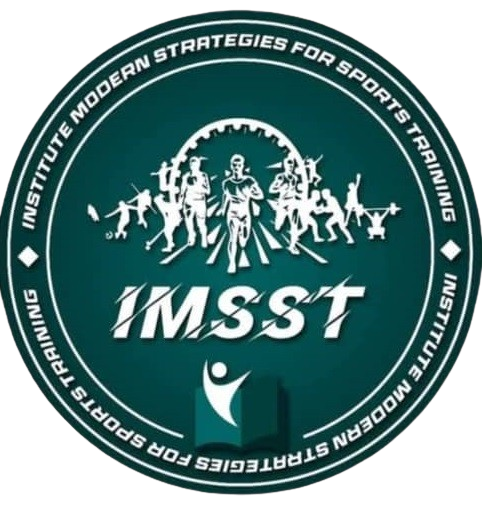Sports manager
A course in Sports Management delves into the multifaceted world of running successful sports organizations, teams, and events. It’s not just about the game itself, but about the strategic, financial, and logistical framework that makes athletic achievement possible. This program equips learners with the essential skills and knowledge to navigate the dynamic and competitive sports industry.
Course Focus:
Fundamentals of Sports Business: Understanding the economic drivers, legal aspects, and ethical considerations within the sports industry.
Sports Marketing and Sponsorship: Developing effective marketing strategies, securing sponsorships, and building brand loyalty for sports entities.
Financial Management in Sports: Mastering budgeting, financial planning, and revenue generation for sports organizations.
Sports Law and Governance: Navigating legal issues related to contracts, player rights, and regulatory compliance.
Event Management: Planning and executing successful sports events, from small-scale competitions to large-scale tournaments.
Facility Management: Overseeing the operation and maintenance of sports facilities.
Athlete Management: Understanding the role of sports agents and developing strategies for athlete representation.
Leadership and Organizational Behavior: Building effective teams, fostering a positive organizational culture, and developing leadership skills.
Sports Communication and Media Relations: Developing effective communication strategies and managing relationships with the media.
Strategic Planning and Development: Crafting long-term plans for sports organizations and adapting to industry trends.
What the Learner Will Gain:
Career Advancement: This course opens doors to diverse career opportunities in professional sports, amateur athletics, sports marketing, and related industries.
Enhanced Business Acumen: Learners will develop strong business skills, including financial management, marketing, and strategic planning.
Industry Knowledge: Gain a comprehensive understanding of the sports industry, its challenges, and its opportunities.
Networking Opportunities: Connect with industry professionals and build valuable relationships.
Practical Skills: Develop hands-on skills through case studies, simulations, and real-world projects.
Leadership Development: Cultivate leadership skills and the ability to manage teams and organizations effectively.
Understanding of Legal and Ethical Parameters: Learn to navigate the complex legal and ethical considerations of the sports world.
Ability to Create and Manage Sporting Events: Learn the in’s and out’s of creating successful sporting events.
A Deeper Understanding of The Business of Sports: Learn how to make a sports team or organization profitable.
By participating in this course, learners will gain the tools and knowledge necessary to become successful sports managers, contributing to the growth and development of the sports industry.
Sports club president
While not typically offered as a standalone academic course in the traditional sense, understanding the role of a Sports Club President can be a valuable module within Sports Management, Leadership, or Organizational Development programs. This module explores the multifaceted responsibilities and strategic importance of this pivotal leadership position.
Course Focus:
Understanding the Presidential Role: Defining the responsibilities, authority, and influence of a Sports Club President.
Strategic Vision and Planning: Developing and implementing long-term strategic plans for the club’s growth and sustainability.
Governance and Compliance: Ensuring adherence to club bylaws, regulations, and ethical standards.
Financial Oversight and Management: Overseeing the club’s financial health, budgeting, and fundraising efforts.
Stakeholder Management: Building and maintaining relationships with players, coaches, staff, sponsors, and the community.
Leadership and Team Building: Fostering a positive organizational culture, motivating volunteers, and building effective teams.
Community Engagement and Development: Promoting the club’s role in the community and contributing to its social impact.
Crisis Management and Conflict Resolution: Developing strategies for handling challenging situations and resolving conflicts.
Public Relations and Media Management: Representing the club to the media and managing its public image.
What the Learner Will Gain:
Leadership Development: Develop advanced leadership skills, including strategic thinking, decision-making, and communication.
Governance Expertise: Gain a thorough understanding of sports club governance and compliance.
Financial Literacy: Enhance financial management skills, including budgeting, fundraising, and financial reporting.
Strategic Planning Abilities: Learn to develop and implement effective strategic plans for sports organizations.
Stakeholder Management Skills: Improve communication and relationship-building skills with diverse stakeholders.
Community Engagement Strategies: Understand how to build strong relationships with the community and promote the club’s social impact.
Conflict Resolution and Crisis Management: Develop skills to handle challenging situations and resolve conflicts effectively.
Understanding of organizational dynamics: Learn how to improve the culture of an organization.
Real-world application: Through case studies, simulations, and guest speakers, students will gain practical insights into the challenges and opportunities of sports club leadership.
This module provides aspiring and current sports leaders with the knowledge and skills necessary to effectively lead and manage sports clubs, contributing to their success and positive impact on the community. It goes beyond the simple understanding of rules and regulations of a sport, and delves into the complex nature of managing people, finances, and the public image of an organization.
Financial manager
A course on Financial Management in Sports is crucial for anyone aspiring to manage the business side of athletics. It delves into the unique financial challenges and opportunities within the sports industry, equipping learners with the tools to ensure the financial health and sustainability of sports organizations.
Course Focus:
Fundamentals of Sports Finance: Understanding the revenue streams, expenses, and financial structures specific to sports organizations.
Budgeting and Financial Planning: Developing and managing budgets, forecasting revenues and expenses, and creating long-term financial plans.
Revenue Generation: Exploring various revenue sources, including ticket sales, sponsorships, broadcasting rights, merchandise, and concessions.
Cost Control and Expense Management: Implementing strategies to minimize costs and maximize efficiency.
Financial Reporting and Analysis: Interpreting financial statements, analyzing financial performance, and identifying areas for improvement.
Investment and Fundraising: Evaluating investment opportunities, securing funding from investors, and managing fundraising campaigns.
Contract Negotiation and Management: Understanding the financial implications of player contracts, sponsorship agreements, and other legal documents.
Risk Management: Identifying and mitigating financial risks, including economic downturns, player injuries, and legal liabilities.
Legal and Regulatory Compliance: Ensuring adherence to financial regulations and tax laws.
Application of financial technology: Understanding the use of modern financial tools, and how they apply to the sports industry.
What the Learner Will Gain:
Financial Expertise: Develop a strong understanding of financial principles and their application to the sports industry.
Budgeting and Forecasting Skills: Learn to create and manage budgets, forecast revenues and expenses, and make informed financial decisions.
Revenue Generation Strategies: Gain insights into various revenue streams and develop strategies to maximize revenue.
Financial Analysis Abilities: Learn to analyze financial statements and identify areas for improvement.
Risk Management Knowledge: Understand how to identify and mitigate financial risks.
Contract Negotiation Skills: Gain insights into the financial aspects of contract negotiation.
Career Advancement: This course opens doors to various financial management roles in professional sports, amateur athletics, and related industries.
Improved decision making: Learn to make wise financial decisions that will help a sports organization to thrive.
Understanding of the business side of sports: Gain a deep understanding of how sports businesses operate financially.
By participating in this course, learners will gain the essential financial skills and knowledge to contribute to the financial success and sustainability of sports organizations.
Sports clubs
A course focusing on Sports Clubs goes beyond simply playing the game. It delves into the intricate workings of these organizations, exploring their structure, management, and impact on individuals and communities. This course provides a comprehensive understanding of how sports clubs operate, from grassroots initiatives to professional franchises.
Course Focus:
Club Structures and Governance: Examining different club models, including member-based clubs, professional franchises, and community organizations.
Club Management and Operations: Understanding the day-to-day operations of sports clubs, including facility management, event planning, and administration.
Community Engagement and Development: Exploring the role of sports clubs in fostering community spirit, promoting social inclusion, and developing youth.
Financial Management and Fundraising: Learning about the financial challenges and opportunities facing sports clubs, including budgeting, sponsorship, and fundraising.
Marketing and Branding: Developing strategies to promote the club, attract members, and build a strong brand identity.
Legal and Ethical Considerations: Understanding the legal and ethical issues related to sports club management, including liability, player contracts, and anti-doping policies.
Volunteer Management: Learning how to recruit, train, and manage volunteers, who are often essential to the success of sports clubs.
Performance Development and Coaching: Examining the role of coaching and performance development in achieving club goals.
The history and sociology of sports clubs: Understanding how sports clubs have developed over time, and the social impact that they have on their communities.
Analysis of different sports club models: Learning the difference between professional, amateur, and recreational clubs, and how they operate.
What the Learner Will Gain:
Comprehensive Understanding of Sports Club Operations: Gain a deep understanding of the inner workings of sports clubs, from grassroots to professional levels.
Management and Leadership Skills: Develop skills in club management, leadership, and organizational development.
Community Engagement Expertise: Learn how to build strong relationships with the community and promote the club’s social impact. Financial Literacy: Enhance financial management skills, including budgeting, fundraising, and sponsorship.
Marketing and Branding Knowledge: Develop strategies to promote the club and build a strong brand.
Legal and Ethical Awareness: Understand the legal and ethical considerations related to sports club management.
Volunteer Management Skills: Learn how to recruit, train, and manage volunteers effectively.
Career Opportunities: This course opens doors to various career opportunities in sports club management, administration, and development.
Improved understanding of the social impact of sports: Learn how sports clubs strengthen communities.
Practical skills: Gain practical experience through case studies, simulations, and real-world projects.
By participating in this course, learners will gain the knowledge and skills necessary to contribute to the success of sports clubs and make a positive impact on their communities.

